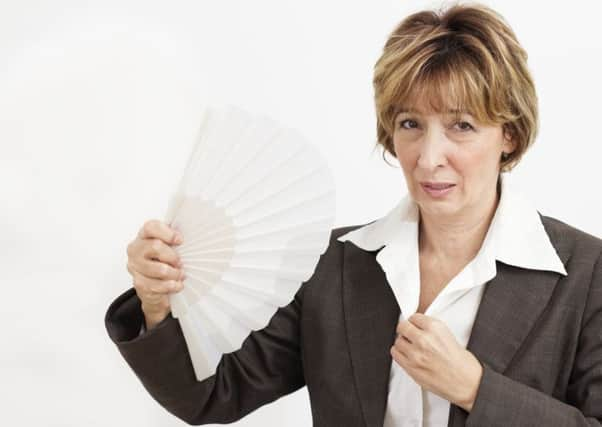HRT should be offered to more women, say experts


The National Institute for Health and Care Excellence (Nice) said women should be offered HRT for hot flushes and night sweats after discussion of the risks and benefits.
Experts said HRT has become a subject that people are afraid of, with some GPs unwilling to discuss it and patients too worried to ask about it.
Advertisement
Hide AdAdvertisement
Hide AdResearch has shown that HRT increases the risk of breast and ovarian cancer, while links have also been made with stroke and heart attack.
According to a Cancer Research UK study in 2002, for every 1,000 women in the UK using any type of HRT for five years from age 50, there is one extra case of ovarian cancer.
For every 1,000 women using oestrogen-only HRT over the same period, there are thought to be 1.5 extra cases of breast cancer, and six extra cases of breast cancer per 1,000 women taking the combination oestrogen-progestogen HRT.
Professor Mary Ann Lumsden, chair of the Nice expert group, who is also honorary consultant gynaecologist at Glasgow Royal Infirmary, said there was a need to “look again” at HRT.
She said the guideline showed that “for most women”, HRT is a very effective treatment for menopausal symptoms.
She stressed that “some women are very severely affected by the menopause”.
About 1.5 million women - 80 per cent of those going through menopause - experience some symptoms, which typically continue for around four years.
For around 10 per cent of women, symptoms can last for up to 12 years. The average age for menopause in the UK is 51.
Advertisement
Hide AdAdvertisement
Hide AdProfessor Lumsden said symptoms that are “really bothersome” - which can include low mood, hot flushes, loss of sexual desire and vaginal dryness - occur in about 20 to 25 per cent of menopausal women.
She said in countries such as the US, as many as 50 per cent of women aged 50 to 60 going through the menopause were taking HRT.
“However, now in most areas of the UK it would be no more than about 10 per cent, maximum 15,” she said. HRT treats symptoms of the menopause and the natural loss of oestrogen by boosting the body with female sex hormones.
There are three types of HRT - oestrogen-only; cyclical HRT, where oestrogen is taken continuously but progestogen, another female sex hormone, is given in monthly or three-monthly doses; and continuous combined HRT of oestrogen and progestogen.